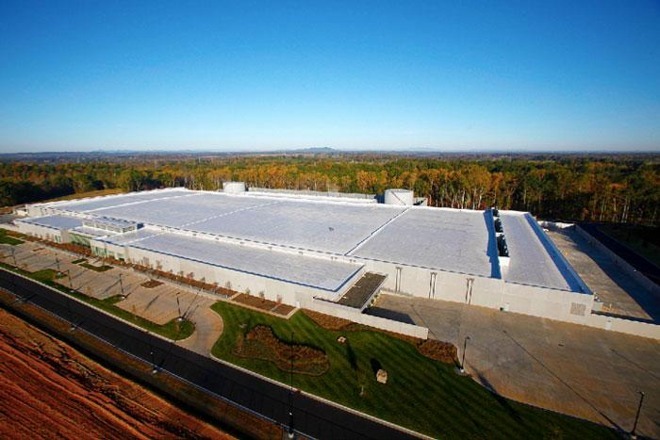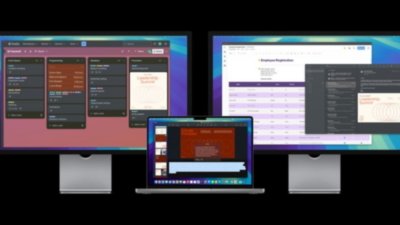A Chinese server vendor, Inspur, has allegedly joined Apple's datacenter supply chain, as the iPhone maker continues to work toward bringing more of its cloud services in-house.
Inspur is backed by the Chinese government, and a major player in the country's internet service server market, as noted by DigiTimes. Some of the company's existing clients are said to include Alibaba, Baidu, Microsoft, IBM, VMware, and Red Hat.
The firm also established an office in Apple's home state of California last year, including production, research, and development functions.
Despite owning data centers in places like North Carolina, Apple is still dependent on outside parties like Amazon and Microsoft for some of its cloud infrastructure. The company is moving towards self-sufficient infrastructure in an effort known as "Project McQueen," including purchases of land in Hong Kong and mainland China, which should house future datacenters.
The switch may make more financial sense for Apple than investing in third parties, but the company is also thought be worried about potential backdoors inserted somewhere along the supply chain, something that could be helped by exerting more control. Snooping could, however, still be a concern with a firm like Inspur, since the Chinese government regularly intercepts internet traffic.
 Roger Fingas
Roger Fingas








 Charles Martin
Charles Martin

 Oliver Haslam
Oliver Haslam
 William Gallagher
William Gallagher
 Christine McKee
Christine McKee
 Sponsored Content
Sponsored Content

 Malcolm Owen
Malcolm Owen








19 Comments
Perhaps they'd only be supplying non-critical components...like cases?
I thought Apple was working on Its own servers to prevent backdoors. Why would they have anything to do with a Chinese manufacturer that's partly owned by the government? It seems odd.
but maybe this would only be for servers in China. The Chinese government has stated last year, that all information about Chinese citizens, and I suppose, really, all traffic, needs to remain in China, somewhat like the EU has come up with in a new law. One might say, as these governments have said, that it's to prevent information about their people from ending up where it shouldn't be, out of the country.
but the real reason is that it's easier to monitor that information when the servers are physically within the territory. An additional reason is that, this way, if they want to, they can simply seize the server farms physically. They can't do that at all if they reside outside of their territory.
in that case, it doesn't matter where the servers come from.
No security concerns here.